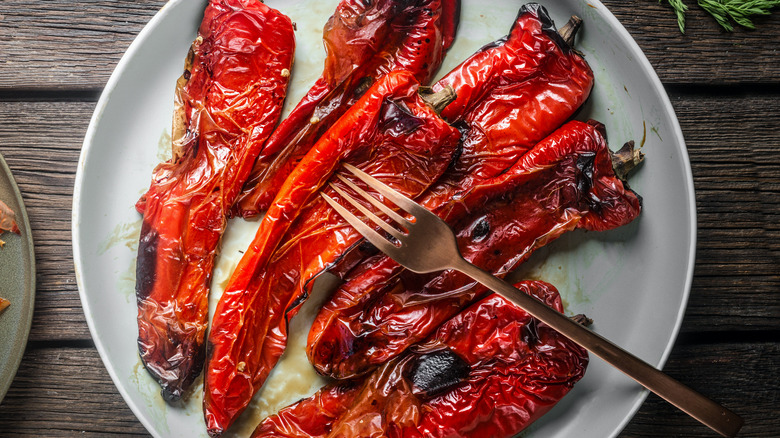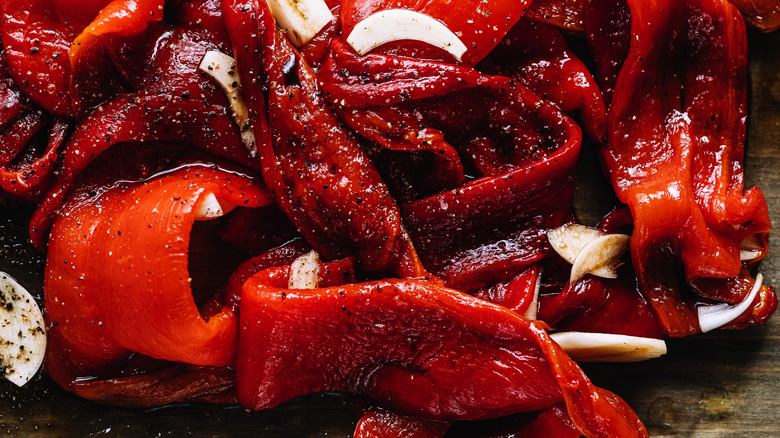What's The Point Of Roasting Peppers?
Sure, red peppers are tasty off the plant with their juicy crunch and sweet flavor. But if you like complex, smoky notes and a darker, caramelized taste, you've got to try roasting them. Cooking a pepper in high heat does four important things. First, it breaks down the vegetable's cell walls, turning the water inside to steam and making it puff up. Next, the proteins and sugars undergo the Maillard reaction, developing the characteristic smokiness and caramelization. When you continue to heat it, the skin chars (don't worry, you'll peel it off later) and the flesh softens. Then more water evaporates, leaving the concentrated essence of sweet, smoky pepper flavor behind. The whole process even increases peppers' vitamin C and antioxidant levels, making them even more nutritious.
Roasting isn't hard to do. You can cut them in half, drizzle them with oil, and put them in the oven at 400 degrees Fahrenheit for half an hour. You could also lay them on a hot cast iron pan, or even hold whole peppers directly in a flame for 10 to 15 minutes. Whichever method you choose, once the skin chars, remove them from heat, let them cool, and peel the skin off, revealing the soft, tasty insides.
Rev up your recipes with roasted peppers
Red peppers pop up in all kinds of global cuisines, from Italian to Mexican. For example, their smoky depth adds intrigue to a Middle Eastern red pepper dip, while the process softens them enough to blend into a smooth, spreadable paste for pitas or chips. They're also a welcome addition to Tex-Mex dishes, such as these black bean fajitas, since their sweet taste blends well with the heat of the spices. You could turn them into hearty red pepper soup, saving a few strips to make a colorful garnish when you serve it up. Or, slice them thin and serve with onions or fire-roasted tomatoes as a hearty side salad.
One caveat: Make sure you take off all of the blackened skin before using the peppers in your recipes. When some food is burnt, it releases chemicals that are considered probable carcinogens. This concern is more common for meat and potatoes, but to be safe, remove the charred section. You won't miss it. The good stuff is on the inside!

